Introduction
I used to think taking breaks was for “weak people.” Like, seriously, I’d brag about how little sleep I needed, posting stories about my late-night grind sessions like they were some kinda badge of honor or who resting without guilt. Coffee wasn’t just a drink it was my identity. Burnout? Just a word lazy people used to dodge work. Then one afternoon, I was trying to book a dentist appointment, and I legit forgot my own phone number. My brain just went poof. I stood there, staring at the keypad, totally blank. That’s when it hit me I wasn’t “strong.” I was empty 😵
If you’ve ever felt guilty for taking a break, this one’s for you. We’re gonna dive into why self-care and rest aren’t the enemies of productivity they’re what make it sustainable. This isn’t just fluffy talk; it’s backed by science, real stories, and a whole lotta trial-and-error (mostly error, let’s be real). We’ll unpack the psychology behind rest, why hustle culture’s got it all wrong, and how you can start taking care of yourself without feeling like you’re slacking off.
So, grab your coffee (or tea, no judgment), and let’s redefine what rest and hustle really mean. Spoiler: doing less isn’t weak it’s smart
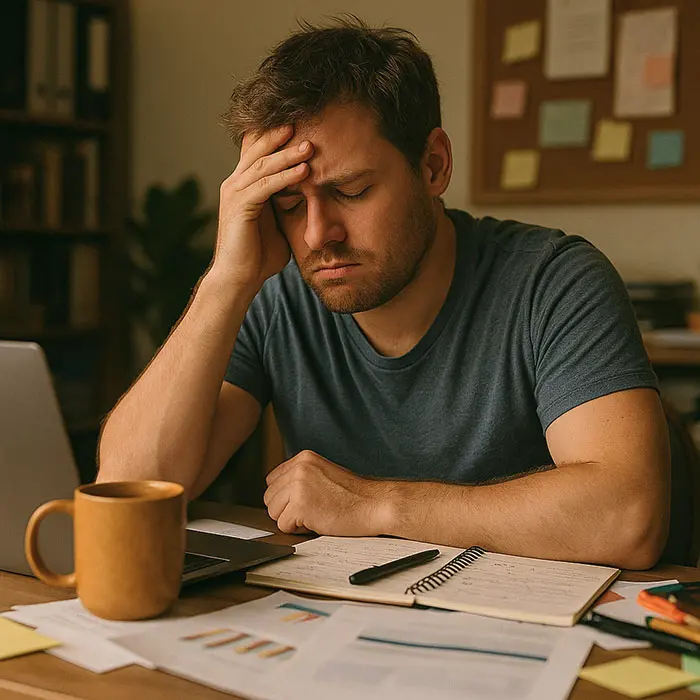
If you’ve ever felt guilty for taking a break, this one’s for you. Here’s a brutally honest look at how self-care and rest are not the enemies of productivity they’re what make it sustainable.
I Thought Breaks Were for “Weak People” (Spoiler: I Was Wrong)
There was a time when I prided myself on how little sleep I needed. I’d post stories about late-night grind sessions like I was doing something noble. Coffee became a badge of honor. Burnout? Just a word lazy people used.
Then one afternoon I forgot my own phone number while trying to book a dentist appointment. My brain just… blanked.
That’s when I realized I wasn’t “strong.” I was empty.
The Big Lie: Self-Care Equals Laziness
We’ve all been fed this lie: if you’re not hustling 24/7, you’re lazy. You see it everywhere social media posts about “rise and grind,” coworkers bragging about their 80-hour weeks, even your own brain telling you that taking a nap is a waste of time. But here’s the truth: self-care isn’t laziness. It’s survival.
Think about it. If you’re running on empty, how are you supposed to show up for work, your friends, or even yourself? You can’t. You’re just limping along, waiting for the next caffeine hit to keep you going. And yeah, maybe you get stuff done, but at what cost? Your health? Your happiness?
Greater Good nails it: “Rest is not the opposite of productivity. It’s a key component of it.” When you rest, your brain gets to process info, make connections, and come up with ideas you’d never get if you were glued to your laptop. It’s like hitting “save” on your mental hard drive. Without it, you’re just asking for a crash.
But society loves to guilt-trip us. “You’re not working hard enough.” “Everyone else is hustling why aren’t you?” It’s exhausting. And it’s wrong. Hustle culture isn’t about success; it’s about burnout. And burnout isn’t a flex it’s a red flag
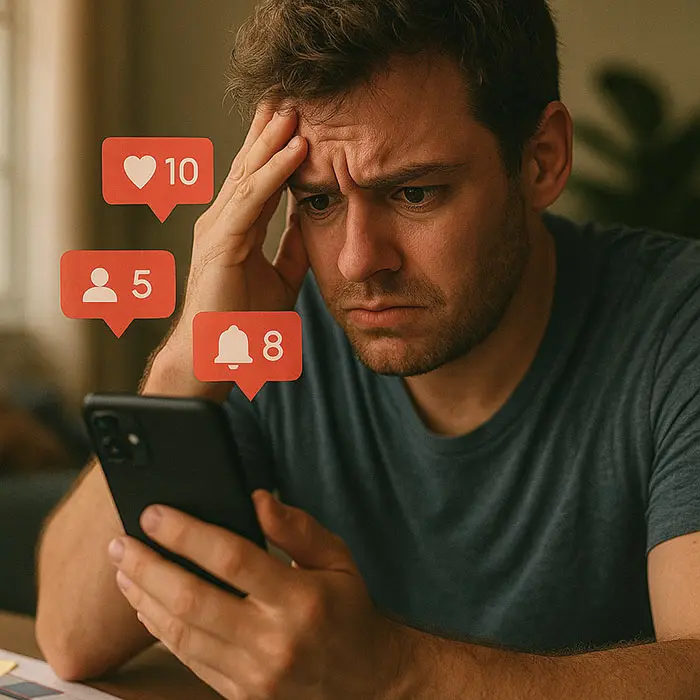
Rest Is Not a Reward It’s a Right
We treat rest like dessert. Something we “earn” after suffering through work. But your body doesn’t care how many tasks you checked off.
Rest isn’t for lazy people. It’s for living people.
If anything, refusing to rest is a form of self-abandonment. Especially when your worth feels tied to how much you produce.
more about: Verywell Mind
What Science Says About Rest and Productivity
Let’s get nerdy for a minute. What does science say about rest and productivity? A ton, actually.
- Boosts Creativity: According to Atlassian, when you rest, your brain’s “default network” kicks in. That’s the part that daydreams, connects random ideas, and sparks those “aha!” moments. Ever solve a problem in the shower? That’s your brain resting and working its magic.
- Reduces Stress: Chronic stress messes with your focus, memory, and even your immune system. Rest lowers cortisol (the stress hormone) and helps you bounce back. UCLA Health says self-care practices like exercise can cut poor mental health days by over 40%.
- Prevents Burnout: Burnout isn’t just feeling tired it’s when you’re so drained you can’t function. Bradley University notes that neglecting self-care can up your risk of heart disease by 67% and cancer by 50%. Scary stuff.
- Improves Relationships: When you’re rested, you’re less likely to snap at your partner or coworkers. You’re more patient and present. Marriage.com says self-care makes you a better partner and friend.
- Enhances Focus: Rest helps your brain consolidate memories and process info, making you sharper when you get back to work. Fitness Blender says balance between work, play, sleep, and rest is key to optimal performance.
Here’s a quick look at the data:
| Benefit | Impact | Source |
|---|---|---|
| Stress Reduction | Up to 40% decrease in poor mental health days | UCLA Health |
| Heart Disease Risk | 67% increase with poor mental health | Bradley University |
| Cancer Risk | 50% increase with poor mental health | Bradley University |
| Cognitive Function | Improved memory and focus with rest | Fitness Blender |
Rest isn’t just nice to have it’s a must-have

What My Body Tried to Tell Me (That I Ignored for Too Long)
The tension headaches, the random stomach flutters, the irritability they weren’t random. They were signals. Like those blinking dashboard lights I always ignore.
Eventually, I started listening. And here’s what changed:
– I stopped working through lunch (most days).
– I blocked one evening a week for doing absolutely nothing.
– I deleted two productivity apps.
– I started celebrating naps. Yes, naps.
This all ties back to what I wrote in the burnout article sometimes, what looks like “slacking” is actually deep self-preservation.

Rest Isn’t the Opposite of Productivity It’s Part of It
If you keep pushing without pause, you don’t just break you blur. You forget who you are outside your work. Outside your output.
Let rest remind you: you’re more than your to-do list.
When Hustle Backfires: Real-Life Stories
Let’s talk about some real moments where hustle culture totally failed me and others.
My Story: The Phone Number Fiasco
I already told you about forgetting my phone number, but let’s dig deeper. I was working on a big project, pulling 12-hour days with barely any breaks. I thought I was killing it. My Instagram stories were all “#hustle” and “#nodaysoff.” But that moment at the dentist’s office? It was my brain screaming, “Yo, we’re done!” I had to take a hard look at my habits and realize my hustle was hurting me more than helping.
My Friend’s Story: The “I’ll Sleep When I’m Dead” Trap
I’ve got a friend who lived by the motto “I’ll sleep when I’m dead.” She’d work late, party even later, and repeat. She thought she was unstoppable. Then she got sick really sick. Her doctor warned her she was on the verge of a breakdown. Now, she’s all about rest. She has a weekly “rest day” where she does nothing no work, no plans, just chilling. She says it’s like hitting reset on her whole life.
The Overworked CEO
I read about this CEO who was always on meetings, calls, emails, 24/7. He thought it was the price of success. Then he had a heart attack at 45. Now, he’s a huge advocate for work-life balance and even wrote a book about it. (I won’t name names, but you can probably guess.)
These stories aren’t outliers. They’re wake-up calls. Hustle culture promises glory but delivers burnout. Rest? It delivers sustainability
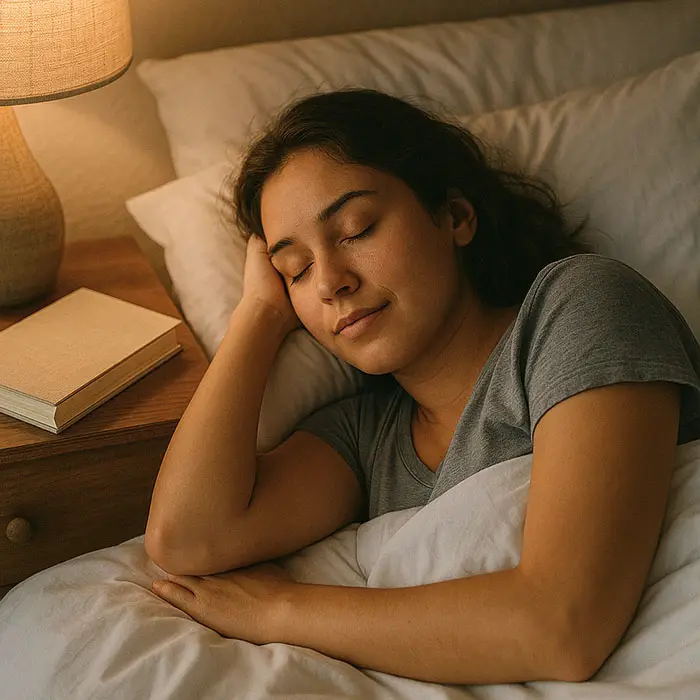
Let’s Answer the Guilty Questions
Q: Is it okay to rest when my to-do list isn’t done?
A: Yes. Your worth isn’t tied to task completion.
Q: What if I feel lazy?
A: Then rest anyway. That feeling is old conditioning, not truth.
Q: How do I take guilt-free breaks?
A: Practice. Start small. Rewrite the story.
Q: Can naps really help with focus?
A: Yes. And joy. And not snapping at your coworkers.
Q: Is hustle culture toxic?
A: It can be. Especially when it tells you rest is weakness.
Related articles that I recommend you don’t miss
How to Practice Self-Care Without Feeling Guilty
So, how do you actually do self-care without feeling like you’re slacking? Here are some practical tips that worked for me and are backed by experts:
1. Schedule Breaks Like They’re Meetings
Treat rest like it’s as important as your work because it is. Block off time for a walk, a nap, or just staring out the window. Business.com says even short breaks can recharge your brain. I started setting a timer for a 10-minute break every couple hours, and it’s like a mini-vacation for my mind.
2. Set Boundaries
Learn to say no to stuff that’s not essential. If you’re already swamped, don’t take on another project. Positive Psychology says boundaries protect your energy. I used to say yes to everything, but now I’m like, “Nah, I’m good.” It’s freeing.
3. Practice Mindfulness
Spend 5 minutes a day just breathing. Sounds basic, but it works. Choosing Therapy says mindfulness reduces stress and boosts your mood. I do a quick breathing exercise inhale for 4, hold for 4, exhale for 4. It’s like hitting reset on my brain.
4. Prioritize Sleep
Aim for 7-8 hours of sleep. No, seriously. Sleep is when your brain processes everything. Sleep Foundation says lack of sleep wrecks your focus and memory. I used to pull all-nighters, but now I’m in bed by 10:30. My brain thanks me.
5. Unplug from Tech
Set a “no phone” hour before bed. Blue light messes with your sleep, and notifications keep your brain on edge. Forbes says unplugging reduces stress. I started leaving my phone in another room at night, and I sleep like a baby.
6. Do Stuff You Love
Make time for hobbies, even if it’s just 10 minutes. Reading, painting, gaming whatever makes you happy. SD Relationship Place says hobbies keep you grounded. For me, it’s reading sci-fi novels. It’s like a little escape from the grind.
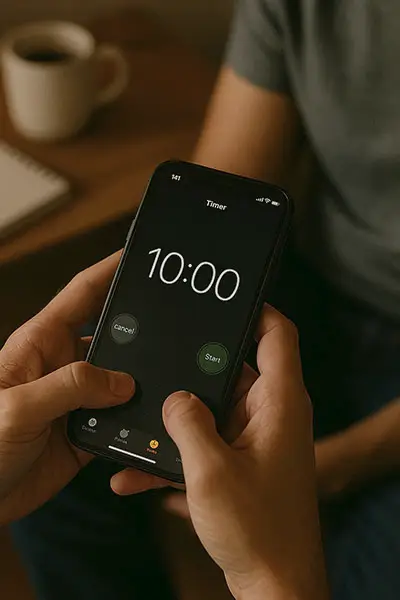
7. Check In with Yourself
Every day, ask, “How am I doing?” If you’re drained, adjust your schedule. It’s not about being perfect it’s about progress. I do this while brushing my teeth. Just a quick, “Yo, how’s my vibe today?” It’s weirdly helpful. 😄
These aren’t just tips they’re lifelines. Start small, and you’ll see the difference
Why Rest Feels So Hard (And How to Make It Easier)
Why is rest so dang hard for some of us? It’s not just guilt it’s how we’re wired. Society tells us busyness equals worth. If you’re not doing something, you’re not valuable. But that’s nonsense.
Here’s why rest feels tough and how to make it eassier:
- Guilt from Hustle Culture: We’re taught that rest is a waste of time. Counter it by reminding yourself, “Rest isn’t lazy it’s necessary.”
- Fear of Falling Behind: You worry that taking a break means losing ground. But Psychology Today says rest actually helps you perform better.
- No Routine: If rest isn’t part of your day, it won’t happen. Make it a habit, like brushing your teeth.
- Start Small: Don’t try to meditate for an hour right away. Start with 2 minutes of breathing.
- Celebrate Wins: Took a 5-minute break? High-five yourself. Small steps add up.
I used to feel so guilty for napping, like I was letting everyone down. But now I see it as recharging my battery. It’s not lazy it’s smart
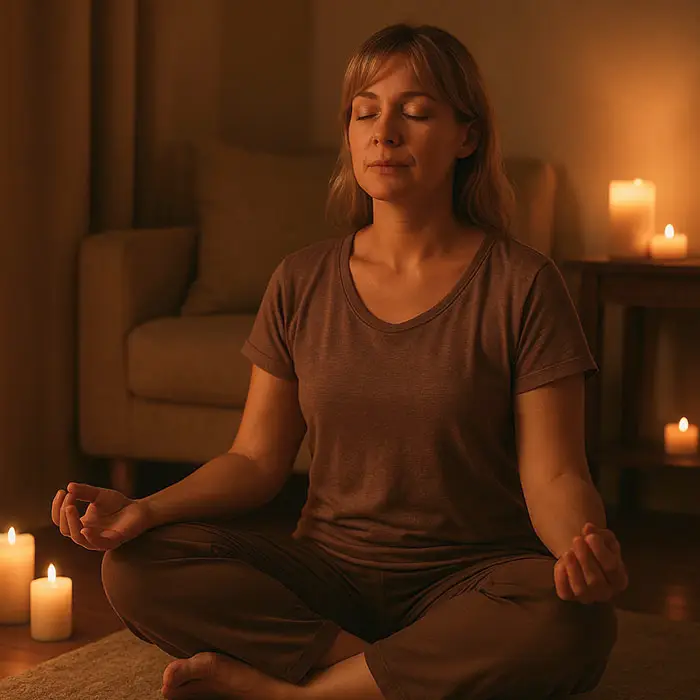
Like I’m wasting time….
I should be doing something else…
being lazy…
But here’s the kicker:
Self-care isn’t the opposite of productivity. It’s what keeps it sustainable.
We’ve just forgotten that.
There’s a word for this in psychology: internalized capitalism.
It’s when you unconsciously believe your value is tied to your output. Your to-dos. Your hustle.
So when you rest? You feel worthless.
It’s not that you’re lazy.
It’s that your nervous system has been trained to equate stillness with shame.
And breaking that pattern takes more than a Sunday bubble bath.
Self-Care for the LGBTQ+ Community
For folks in the LGBTQ+ community, self-care can be a lifeline. Society often puts extra pressure on us whether it’s dealing with discrimination, family rejection, or just the stress of navigating identity. That’s why rest and self-care are non-negotiable.
Them.us suggests finding joy in small things, like listening to music or connecting with supportive communities. A friend of mine who’s trans said they started journaling about their journey, and it helped them process tough days and feel more grounded. Self-care isn’t just about feeling good it’s about reclaiming your space in a world that can feel heavy.
If you’re part of the LGBTQ+ community, look for affirming spaces, like queer-friendly therapy or support groups. It’s like giving yourself permission to breathe. 😊
(self-care vs laziness) Is Self-Care Just a Fancy Word for Laziness?
Let’s be brutally honest.
A lot of us were raised in environments where rest = weakness.
You take a nap? Must be lazy.
You binge a show on your daay off? Clearly unmotivated.
You skip a morning workout? No discipline.
So no wonder the line between self-care and laziness gets blurry.
But there’s a difference. And it matters.
Self-Care:
- Is intentional
- Meets real needs
- Leaves you more whole
Laziness:
- Is usually avoidance
- Often masks fear, fatigue, or emotional overload
- Leaves you feeling more disconnected
One builds resilience.
The other… just delays discomfort.
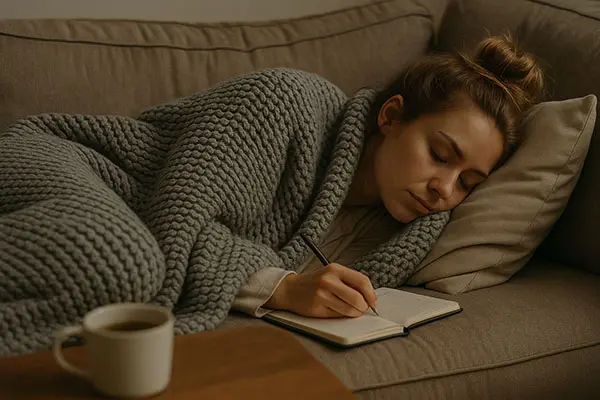
The Psychology of Motivation and Rest
Let’s talk about why we’re so obsessed with hustle. It’s all about dopamine that feel-good chemical your brain releases when you finish a task. It’s why crossing something off your to-do list feels so good. But here’s the catch: if you keep pushing without rest, that dopamine well runs dry. You end up unmotivated, stuck, and resentful.
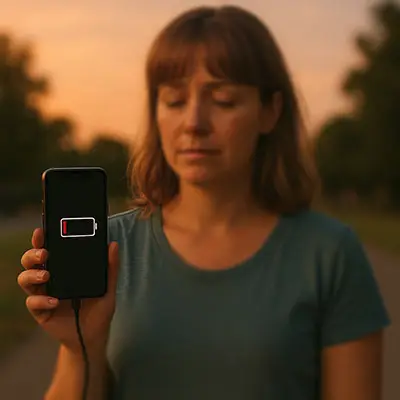
Rest resets the cycle. It gives your brain a chance to recharge, so you come back to work with fresh energy.
Psychology Today says self-care and productivity aren’t opposites they’re partners. When you rest, you’re not just chilling; you’re setting yourself up for success
Think of it like charging your phone. If you don’t plug it in, it dies. Same with you
It’s Not Laziness
Want the truth?
Most people who label themselves lazy are actually:
- Overwhelmed
- Depressed
- Disconnected from purpose
- Or running on burnout autopilot
Psychologists call this learned helplessness. It’s when your brain after too many disappointments just gives up before trying.
Not because you don’t care.
But because deep down, you don’t believe it’ll make a difference.
You’re not lazy.
You’re numb.
You’re tired in a way that sleep won’t fix.
Is It Normal to Feel Tired from Self-Care?
Surprisingly… yes.
Real self-care isn’t always gentle.
Sometimes it’s setting a scarry boundary.
it’s going to therapy and crying for 50 minutes straight.
Sometimes it’s facing things you’ve avoided for years.
That’s not laziness. That’s emotional labor.
And of course it’s tiring.
Can Laziness Go Away?
Not in the way we think of it.
Because laziness usually isn’t the root issue.
It’s a symptom.
If you try to “fix laziness” without understanding what’s beneath it, you’ll just end up with more self-judgment.
More pressure.
More shame spirals.
Instead, try asking:
- Am I tired or unmotivated?
- Am I uninspired or emotionally shut down?
- Am I afraid to fail, so I don’t try at all?
Healing laziness looks less like fixing…
And more like listening.
Only if you’re taught that your needs don’t matter.
But let’s flip it:
- Would you say drinking water is selfish?
- Taking a breath?
- Sleeping 7 hours?
Nope.
So why is emotional or mental care any different?
You’re not selfish for recharging. You’re responsible.

But Wait… What If I Am Just Lazy?
Okay, let’s entertain that voice for a second.
Let’s say you are lazy.
So what?
Are you less human because of it?
Less deserving of care?
Less worthy of love?
This whole obsession with hyper-productivity is exhausting.
Not everyone thrives in hustle culture.
Not everyone wants to.
Some people are slow bloomers.
Some need more sleep.
Some are doing invisible labor you’ll never see.
Lazy is a label. And labels lie.
Is Being Lazy Ever Healthy?
Believe it or not sometimes, yes.
Resting without a purpose.
Staring out the window.
Doing nothing for no reason?
That’s not lazy. That’s idling. And it’s crucial.
Your brain solves problems when you daydream.
Your body heals when you pause.
Your soul finds clarity in silence.
So next time you’re “lazy,” maybe you’re actually healing.
How to Redefine Productivity (Without Burning Out)
Here’s the trick no one tells you:
Productivity isn’t how much you do.
It’s how well you align your energy with what matters.
Try this:
- Set intentional rest hours (and guard them)
- Batch your tasks instead of multitasking
- Celebrate micro-wins (like drinking water or showing up)
- Replace “lazy” with “in recovery”
Because sometimes… doing nothing is doing everything your body begged for.

Conclusion Final Thought: Rest Isn’t a Weakness. It’s a Rebellion.
Every time you choose softness over hustle…
Presence over proving…
Stillness over striving…
You’re pushing back against a culture that says you must earn your worth.
But your worth was never tied to your productivity.
It lives in your breath.
Your being.
Your becoming.
You don’t have to hustle to deserve to exist.
You just have to remember:
Rest is not a break from being alive it’s what keeps you whole.
Self-care isn’t laziness it’s the fuel that keeps your hustle going. It’s not about ditching work or being selfish; it’s about working smarter, not harder. Rest gives your brain the space to process, create, and thrive. Without it, you’re just running on fumes, waiting for a crash.
So, next time you feel guilty for taking a break, remind yourself: you’re not weak for resting. You’re wise. You’re investing in your future your productivity, your health, your happiness.
Start small. Take a 5-minute walk. Say no to one extra task. Go to bed a little earlier. You don’t have to overhaul your life just give yourself permission to pause. And if you forget your phone number again, maybe it’s time for a nap. Just saying. 😴
Citations:
Suggestions:
- Why Knowing Yourself Is the First Step to Self-Care
- A Gentle Morning Routine That Doesn’t Feel Like a Chore
✨ Last updated on 24.07.2025
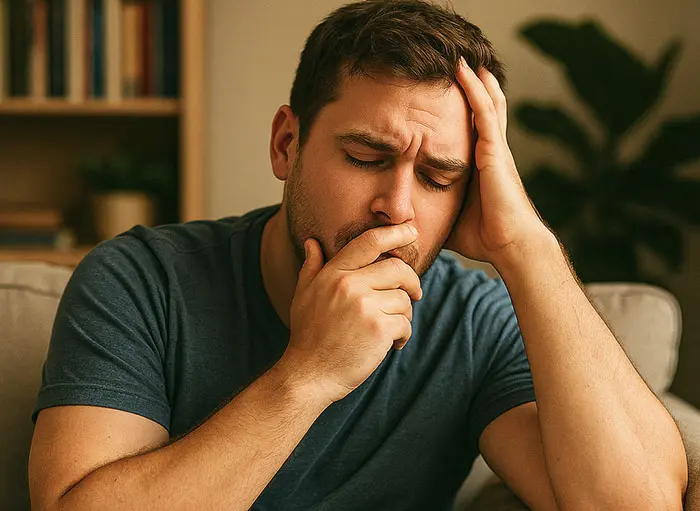










Leave a Reply